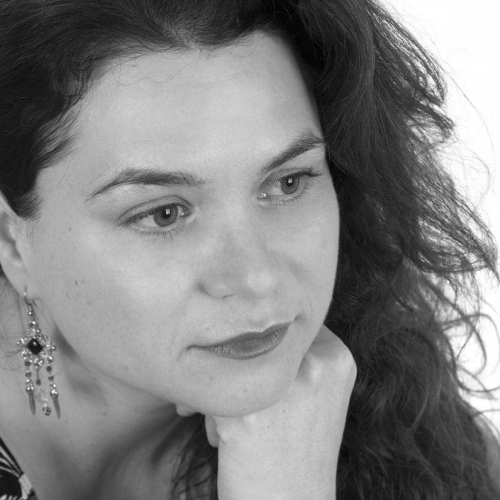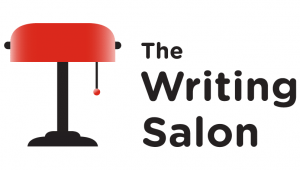Do you remember a particular movie that made you want to become a filmmaker? What was it and how has it shaped you as a writer, director, and producer?
That’s a tough one! So many films have inspired me along the way and it really depends on the genre, but what comes to mind is when I saw Billy Wilder’s Some Like It Hot at an art house theater when I was in college. I went back to see it two more times before it got replaced by The King of Hearts, another great comedy by the French filmmaker Phiippe de Broca, which I also saw multiple times. The first uses mistaken identity to brilliant effect – and that’s also one of my favorite comic devices. The second is considered one of the best anti-war films of all time, but it sneaks that message onto the screen in between the laughs, and that’s also something I aspire to in my work.
Can you walk us through your creative process when writing a screenplay? How do you begin to shape your characters and story arcs? Are there particular themes or real-life events that you often draw from?
I’m a “discovery writer” and my creative process is very character-driven. It’s actually a lot like improv. I may have a general idea for a story, a basic concept in mind – but I may not be sure where it starts or ends. So I’ll play with a cast of potential characters, taking them on and trying them out. I won’t try to steer it too much in the beginning – I’ll just give them some space to have a “voice” as I throw them into various situations and conversations to see what they say and do. It’s a lot of fun, especially when a character takes on a life of their own and I’m just channeling the muse. I draw from a number of sources, including my own life but also from news stories and from history. I love creating comedic mistaken identity situations and writing characters that bust stereotypes.
You teach Screenwriting Boot Camp at The Writing Salon throughout the year. What do you like about teaching students who are new to screenwriting? What is the one skill you’d like new screenwriters to come away with?
I love teaching this class! It’s usually a mix of seasoned writers and total newcomers. But we’re ALL in the film business, at least as consumers, so we’ve all absorbed aspects of that storytelling paradigm. The class is interactive so everyone starts developing characters and scenes right away and it’s great as they all realize that they can do it. What I like them all to leave with is a combination of joy and confidence. Screenwriting takes a long time and a lot of self-discipline to master but it’s much easier to make time for something your genuinely enjoy doing – so the class is designed to be fun. In terms of confidence, there’s a lot of mystery to the industry and how it works. I know from my own experience that it can be very motivating to have a sense of what to do once you finish a screenplay; like how to get it into the hands of agents and producers. So we cover that, too.
In addition to screenwriting, you also teach comedy writing at The Writing Salon. How did you learn the art of comedy and what do you enjoy about it? Is there one tip you could share with aspiring comedy writers?
Comedy’s been a throughline for me. I was in a sketch comedy group in high school and I continued with comedy theater in college, and my first pro writing gig was a comedy pilot for a fledgling cable show at NBC. But that went nowhere and I got promoted on my ‘day job’ at the Wall Street Journal so I no longer had time to moonlight. When I finally returned to comedy, it was as a screenwriter. I love so much about comedy. It’s a tonic and a connector. “Laughter is the shortest distance between two people.” And you can get all kinds of ideas across when people have their guard down because they’re amused. And here’s the tip: It CAN be learned! There are devices that will instantly make any story funnier. It’s another realm that no longer intimidates people once it’s deconstructed.
You write, direct, produce, and edit for film and television. How does collaboration shape your work and creative process?
Film and TV are both highly collaborative. In film, the screenwriting process may be a collaboration or a solo venture. In TV, it often starts with one writer’s concept; maybe they write the pilot and series bible – but if it’s produced, other writers will be hired to join the “room” and the writing becomes collaborative. As a producer and director, I often will start thinking of the crew and the cast as I go. Some characters may be inspired by certain actors, for instance – and I’m naturally aware of the production costs I’m writing into a story; the number of characters, the location, the action sequences, etc. I do try to keep the money part of my brain off in the beginning but it can become a consideration as I fine-tune. A film that’s more affordable to produce may be more likely to get made.

Kate Montgomery’s films have premiered at Sundance and won awards at Austin Film Festival, Santa Fe Film Festival, San Francisco Indie Fest, the London Sci-Fi Film Festival, and NYC Reel Film Festival. Kate has optioned & sold screenplays to producers and studios in the US, Canada and UK. As time permits, she teaches screenwriting and comedy writing and works as a writing coach, story editor, production consultant and script doctor for individual and industry clients. Her background includes a decade at The Wall Street Journal, and five years in commercial production.

Kerry Muir‘s plays include Running on Moontime, The Night Buster Keaton Dreamed Me, and Befriending Bertha/Conociendo a Bertha (a one-act for children), which were published in dual language (Spanish-English) editions by NoPassport Press as part of their Dreaming the Americas series, curated by Lifetime Achievement Obie Award-winning playwright, Caridad Svich. Her plays have garnered awards and productions at the Nantucket Short Play Festival, Great Platte River Playwrights Festival, Gibraltar International Drama Festival, and elsewhere. Her prose has appeared in Kenyon Review Online, Crazyhorse, Riverteeth, West Branch, Willow Springs, Fourth Genre and more. Two of her essays, “The Bridge” and “BLUR,” were named as notable in Best American Essays of 2011 and 2018, edited by Edwidge Danticat and Hilton Als, respectively. Her short film “Madame” (an official selection of San Francisco Independent Film Festival 2024, Cinema on the Bayou Film Festival 2024, AHITH Film Festival 2023) is currently making the rounds on the film festival circuit. Visit her online at: https://kerry-muir-5gnx.squarespace.com.
